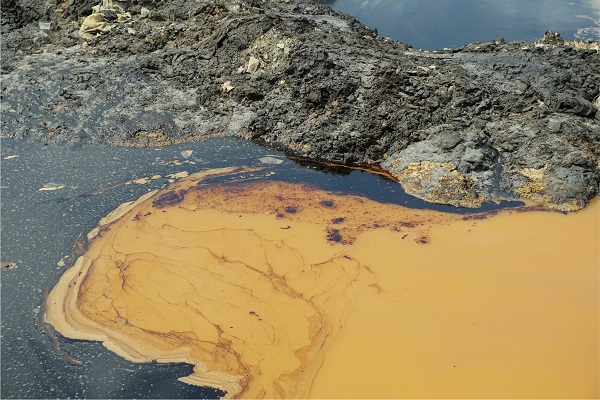 Credit: © Tomas Vynikal - stock.adobe.com
Credit: © Tomas Vynikal - stock.adobe.com
Luxembourg's Environment Agency has warned of potential soil pollution following the recent floods.
In addition to causing significant material damage, the recent floods which affected Luxembourg may have been the source of chemical spills (fuel oil, etc.) into the environment. These spills may have caused local and / or diffuse soil pollution. The Environment Agency has offered some recommendations on this subject, in order to provide support for the management of the consequences of this pollution.
According to the agency, diffuse pollution was likely created over all of the flooded areas. These are generally the same pollutants as in the case of local pollution, but are highly diluted, transported to medium and long distances by water and sediments. Pollutants linked to fuel spills are not (or little) assimilated by plants and are generally degraded or immobilised in the soil. It is therefore unlikely that this diffuse pollution could pose a significant risk to the health of residents or to future harvests in vegetable gardens. Regarding the consumption of fruits and vegetables that have been in direct contact with flood water, the public is asked to follow the recommendations of the Ministry of Health.
For people whose land has been affected by flooding, the Environment Agency recommends:
- digging up the first 10 cm of the soil to improve soil aeration and thus allow better degradation of certain organic pollutants which may be present in the soil following diffuse pollution;
- as a precaution, it is recommended to put on gloves when working in the garden and to wash your hands thoroughly afterwards.
- in the event that sludge or sediments are to be removed, it is recommended to limit this to the masses which were actually brought in by the flood event. In the case of diffuse pollution, excavation is generally not necessary;
- before evacuating sludge and sediment, it is recommended to store them and let them dry, where possible;
- if in doubt about the chemical quality of the sludge or sediment intended to be evacuated, it is recommended to contact an approved organisation in the field of the environment and to have chemical analyses carried out with a view to a suitable evacuation. Approved bodies can generally give advice on the proper management of this waste;
- a concerted approach with other affected people may be considered in order to minimise the costs associated with the management of sludge and sediment.
In addition to diffuse pollution which has spread over very large areas, local soil pollution (in higher concentrations) may have taken place. If, for example, an oil tank has spilled on land, it may be affected by local soil pollution. In such cases:
- it is recommended that you first check with your insurer whether the damage is covered by your insurance contract;
- in order to assess the health and environmental risks resulting from local soil pollution, soil studies are required. It is essential that these studies be carried out by an approved body in the field of the environment. A list of approved organisations can be downloaded here: http://www.aev.etat.lu/download/organismes/Listes_des_organismes_agreees/Pers_agree_sauf_domaine_logement.pdf
In case of doubt, concerned individuals can contact the Environment Agency via email: protection-sols@aev.etat.lu.








